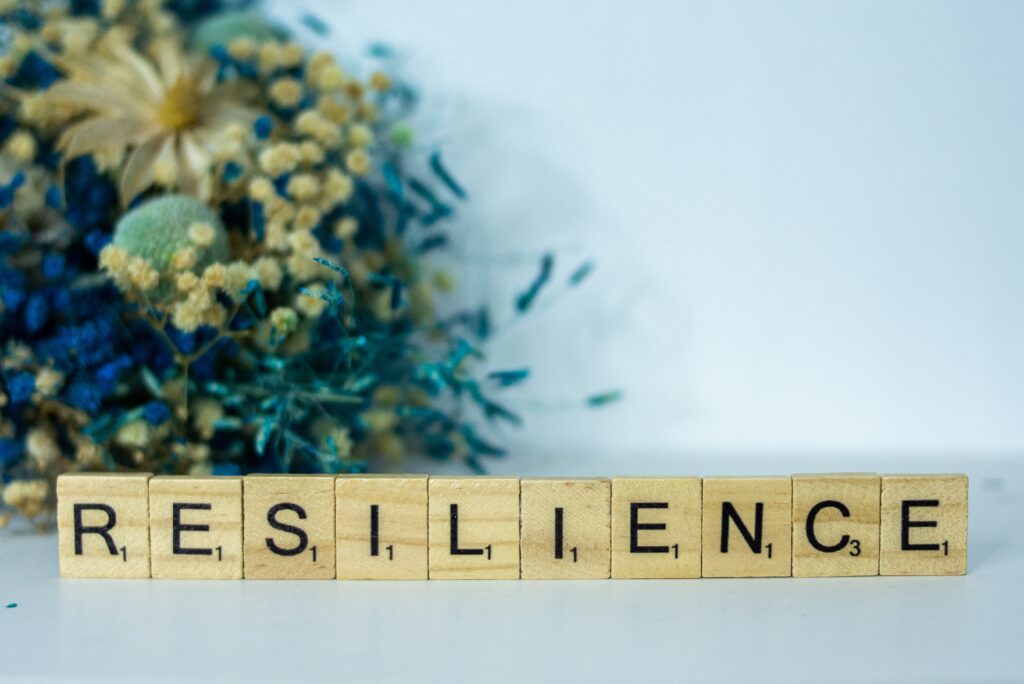In life, we often encounter challenges that test our strength and resilience. Whether it’s the loss of a job, a breakup, or a health issue, adversity can leave us feeling overwhelmed and uncertain. But fear not, because there are steps you can take to cultivate resilience and bounce back stronger than ever. By focusing on self-care, finding support, and reframing your mindset, you can navigate through tough times with grace and emerge as a resilient individual. So, let’s explore some strategies together and empower ourselves to conquer adversity head-on.
Understanding Resilience
Resilience is the ability to bounce back and thrive in the face of adversity. It is a skill that can be developed and nurtured over time. Resilience allows you to navigate through life’s challenges, setbacks, and uncertainties with grace and strength. By understanding resilience, you can harness its power and use it to overcome obstacles and reach your full potential.
Defining Resilience
Resilience can be defined as the capacity to adapt and recover from difficult experiences. It is not about avoiding or suppressing negative emotions, but rather about embracing them and using them as fuel for growth. Resilience is like a muscle that can be strengthened through practice and conscious effort. It involves acknowledging one’s emotions, coping with stress, and maintaining a positive perspective amidst hardships. Ultimately, resilience is about finding inner strength and persevering, even in the face of adversity.
The Importance of Resilience
Resilience is essential because it helps you navigate through life’s challenges with greater ease and confidence. It empowers you to overcome setbacks, learn from failures, and grow as an individual. Resilient individuals are more likely to bounce back from setbacks, maintain good mental health, and achieve their goals. In addition, resilience allows you to adapt to change, manage stress, and build strong relationships. By cultivating resilience, you can enhance your overall well-being and lead a more fulfilling life.
Characteristics of Resilient Individuals
Resilient individuals possess certain traits and characteristics that contribute to their ability to overcome adversity. These traits include:
- Optimism: Resilient individuals have a positive outlook on life and believe in their ability to overcome challenges.
- Adaptability: They are flexible and can adjust their mindset and actions to adapt to new situations.
- Perseverance: Resilient individuals do not give up easily. They have the determination and drive to keep going, even in the face of obstacles.
- Emotional intelligence: They have a high level of emotional intelligence and are able to recognize and manage their own emotions effectively.
- Problem-solving skills: Resilient individuals are good problem solvers. They can identify the root cause of an issue and come up with creative solutions.
- Social support: They have a strong network of supportive relationships that provide them with guidance, encouragement, and emotional support.
- Self-care: Resilient individuals prioritize their physical and mental well-being, taking care of themselves to maintain their resilience.
Developing a Growth Mindset
A growth mindset is the belief that your abilities and intelligence can be developed and improved over time. It is a key component of resilience, as it allows you to embrace challenges, adopt a positive attitude, and believe in personal growth. Developing a growth mindset can help you overcome obstacles, learn from failures, and view setbacks as opportunities for growth.
Embracing Challenges
Embracing challenges is an important part of developing a growth mindset and cultivating resilience. Instead of avoiding or fearing challenges, resilient individuals see them as opportunities to learn and grow. They understand that facing challenges head-on can lead to personal development, increased confidence, and new opportunities. By embracing challenges, you can expand your skills, knowledge, and abilities, ultimately becoming a more resilient individual.
Adopting a Positive Attitude
A positive attitude is crucial for building resilience. Resilient individuals choose to focus on the positive aspects of a situation, even in the face of adversity. They maintain a hopeful and optimistic outlook, which enables them to overcome obstacles with greater ease. Adopting a positive attitude involves reframing negative thoughts, practicing gratitude, and cultivating a sense of optimism. By choosing to see the silver lining in difficult situations, you can foster resilience and maintain a positive mindset.
Believing in Personal Growth
Believing in personal growth is a fundamental aspect of developing a growth mindset and building resilience. Resilient individuals have a deep-seated belief in their ability to learn, grow, and improve. They understand that failure is not permanent, and setbacks are opportunities for growth and self-improvement. By believing in your own potential for growth, you can cultivate resilience and overcome adversity with confidence and determination.

Building Strong Relationships
Building strong relationships is essential for resilience. Having a support system in place can provide you with the emotional support, guidance, and encouragement needed to navigate through challenges and setbacks. Strong relationships also enhance your overall well-being and contribute to your psychological resilience.
Importance of Support Systems
Support systems play a vital role in building resilience. Friends, family members, mentors, and colleagues can provide emotional support, practical advice, and a listening ear during difficult times. Having a support system in place can help you feel less alone, boost your confidence, and provide you with the strength to overcome adversity. It is important to nurture and maintain these relationships by being present, showing gratitude, and offering support to others in return.
Fostering Healthy Connections
In addition to having a support system, fostering healthy connections is crucial for resilience. Building and maintaining healthy relationships can provide you with a sense of belonging and purpose. It is important to surround yourself with positive and supportive individuals who encourage your personal growth and well-being. By nurturing healthy connections, you can build a strong support network that will help you navigate through life’s challenges with resilience and strength.
Developing Empathy and Communication
Empathy and communication are key components of building strong relationships and fostering resilience. Empathy involves understanding and sharing the feelings of others, while effective communication enables you to express your thoughts, feelings, and needs honestly and respectfully. Developing empathy and effective communication skills can help you build deeper connections, resolve conflicts, and support others in their times of need. By practicing empathy and communication, you can cultivate resilience both within yourself and in your relationships.
Practicing Self-Care
Practicing self-care is essential for maintaining resilience and well-being. Taking care of your physical health, cultivating emotional well-being, and engaging in relaxation techniques can help you recharge, reduce stress, and build resilience.
Prioritizing Physical Health
Physical health is an important aspect of resilience. Taking care of your body through regular exercise, nutritious eating, and adequate sleep can boost your energy levels, improve your mood, and enhance your overall well-being. Engaging in physical activities that you enjoy, such as walking, yoga, or dancing, can also provide a much-needed break from stress and help you build resilience.
Cultivating Emotional Well-being
Emotional well-being is crucial for resilience. It involves recognizing and managing your emotions effectively, seeking support when needed, and engaging in activities that bring you joy and fulfillment. Cultivating emotional well-being can be achieved through practices such as mindfulness meditation, journaling, therapy, and engaging in hobbies that bring you happiness. By taking care of your emotional well-being, you can enhance your resilience and cope better with life’s challenges.
Engaging in Relaxation Techniques
Relaxation techniques can help you relax, reduce stress, and build resilience. Activities such as deep breathing exercises, progressive muscle relaxation, and guided imagery can help calm your mind, improve your ability to cope with stress, and enhance your overall well-being. Taking time for relaxation and self-care is essential for maintaining resilience in the face of adversity and ensuring your well-being.

Developing Problem-Solving Skills
Problem-solving skills are essential for resilience. Being able to identify problems, generate possible solutions, and evaluate and implement those solutions can help you overcome obstacles and navigate through challenging situations.
Identifying the Problem
Identifying the problem is the first step in developing problem-solving skills. Resilient individuals are skilled at recognizing and defining the challenges they face. By clearly understanding the problem, you can develop effective strategies for overcoming it.
Generating Possible Solutions
Once you have identified the problem, the next step is to generate possible solutions. Resilient individuals are creative and resourceful in finding different ways to tackle the problem at hand. Brainstorming, seeking advice from others, and thinking outside the box can help you come up with potential solutions.
Evaluating and Implementing Solutions
After generating possible solutions, it is important to evaluate their feasibility and potential outcomes. Resilient individuals consider the pros and cons of each solution and choose the one that seems most appropriate. Implementing the chosen solution involves taking action, making adjustments along the way if needed, and staying committed to finding a resolution. Developing problem-solving skills enables you to adapt to challenges and build resilience in the face of adversity.
Adapting to Change
Adapting to change is a key component of resilience. Change is inevitable, and being able to adjust and embrace it can help you navigate through life’s transitions with resilience and confidence.
Accepting the Inevitability of Change
Accepting that change is a natural part of life is essential for developing resilience. Resilient individuals understand that change is inevitable and that resisting it only leads to unnecessary stress and frustration. By accepting and embracing change, you can foster resilience and adapt more effectively to new situations and circumstances.
Finding Opportunities in Transitions
Transitions and changes often present opportunities for growth and self-discovery. Resilient individuals view transitions as chances to learn, acquire new skills, and explore new possibilities. By embracing the opportunities that come with change, you can build resilience, expand your horizons, and create a more fulfilling life.
Developing Flexibility and Adaptability
Flexibility and adaptability are crucial for building resilience. Resilient individuals are open to new possibilities, adaptable to different circumstances, and willing to adjust their plans when necessary. Developing flexibility and adaptability involves being open-minded, embracing uncertainty, and being willing to step out of your comfort zone. By cultivating these qualities, you can navigate through change with resilience and embrace the opportunities that come with it.

Learning from Failure
Failure is an inevitable part of life, and resilience enables you to learn from failures, bounce back, and continue moving forward. By changing your perspective on failure, extracting lessons from setbacks, and maintaining resilience in the face of rejection, you can grow and thrive.
Changing Perspective on Failure
Resilient individuals view failure as an opportunity for growth rather than a reflection of their worth. They understand that failure is not a permanent state, but rather a stepping stone on the path to success. By changing your perspective on failure and viewing it as a learning experience, you can cultivate resilience and bounce back stronger than ever.
Extracting Lessons from Setbacks
Setbacks and failures provide valuable lessons that can contribute to your personal growth and development. Resilient individuals reflect on their setbacks, identify the lessons learned, and use them as stepping stones for future success. By extracting lessons from setbacks, you can gain valuable insights, refine your approach, and build resilience.
Resilience in the Face of Rejection
Rejection is a common experience that can test your resilience. Resilient individuals understand that rejection is not a reflection of their worth, but rather a part of life. They maintain a positive attitude, learn from the experience, and continue to pursue their goals. Resilience enables you to bounce back from rejection, maintain your motivation, and persevere in the face of adversity.
Managing Stress and Emotions
Stress and emotions can greatly impact your resilience. By recognizing stressors, building stress management strategies, and regulating your emotions, you can enhance your resilience and navigate through challenges with greater ease.
Recognizing Stressors
Stressors are events or situations that cause stress and impact your ability to cope effectively. Resilient individuals are able to recognize their stressors and understand how they impact their well-being. By identifying stressors, you can develop strategies to manage them and build resilience.
Building Stress Management Strategies
Building stress management strategies is essential for resilience. Resilient individuals adopt healthy coping mechanisms such as exercise, relaxation techniques, and time management. They also seek support from others, practice self-care, and prioritize their well-being. By developing effective stress management strategies, you can build resilience, reduce stress, and navigate through challenges more effectively.
Regulating Emotions
Emotional regulation is crucial for resilience. Resilient individuals are able to recognize and manage their emotions in a healthy and constructive manner. They understand that expressing emotions and seeking support when needed is essential for maintaining resilience. By developing emotional regulation skills, you can navigate through challenges with greater ease, maintain your well-being, and build resilience.

Setting Realistic Goals
Setting realistic goals is important for building resilience. By understanding the importance of goal-setting, creating SMART goals, and breaking down goals into manageable steps, you can enhance your resilience and achieve your objectives.
The Importance of Goal-setting
Goal-setting provides direction and purpose to your actions. Resilient individuals understand the importance of setting goals that are meaningful and aligned with their values and aspirations. Having clear goals gives you something to strive for and helps you stay motivated and focused during challenging times. By setting goals, you can enhance your resilience and maintain your momentum in the pursuit of your dreams.
Creating SMART Goals
When setting goals, it is important to make them SMART: Specific, Measurable, Achievable, Relevant, and Time-bound. Resilient individuals set goals that are clear, well-defined, and realistic. By creating SMART goals, you can enhance your resilience and increase your chances of success. For example, instead of setting a vague goal like “I want to exercise more,” a resilient individual would set a SMART goal like “I will exercise for 30 minutes, three times a week, for the next six months to improve my physical health and well-being.”
Breaking Goals Down into Manageable Steps
Breaking goals down into manageable steps is crucial for building resilience. Resilient individuals understand that big goals can be overwhelming and may lead to discouragement. By breaking goals down into smaller, actionable steps, you can make them more attainable and increase your motivation. Celebrating small victories along the way can also boost your resilience and keep you motivated to achieve your larger goals.
Maintaining Optimism and Hope
Maintaining optimism and hope is vital for resilience. By fostering a positive outlook, finding meaning and purpose, and cultivating gratitude and resilience, you can enhance your overall well-being and build resilience.
Fostering a Positive Outlook
A positive outlook is a powerful tool for resilience. Resilient individuals choose to focus on the positive aspects of life, even during challenging times. They cultivate optimism, practice positive self-talk, and look for silver linings in difficult situations. By fostering a positive outlook, you can build resilience, maintain your motivation, and navigate through challenges with grace and strength.
Finding Meaning and Purpose
Finding meaning and purpose in life contributes to resilience. Resilient individuals have a sense of direction and a clear understanding of their values and what matters most to them. By aligning your actions and goals with your values, you can find purpose and meaning, which strengthens your resilience and provides a sense of fulfillment even during difficult times.
Cultivating Gratitude and Resilience
Gratitude and resilience go hand in hand. Resilient individuals practice gratitude regularly, focusing on the positive aspects of their lives and expressing appreciation for what they have. Cultivating gratitude can enhance resilience by shifting your focus towards the positive, fostering a sense of contentment, and increasing your overall well-being. By cultivating gratitude and resilience, you can navigate through challenges with greater ease and find joy in the midst of adversity.
In conclusion, resilience is a powerful skill that can be developed and nurtured over time. By understanding resilience, developing a growth mindset, building strong relationships, practicing self-care, developing problem-solving skills, adapting to change, learning from failure, managing stress and emotions, setting realistic goals, and maintaining optimism and hope, you can cultivate resilience in the face of adversity. Remember, resilience is like a muscle that grows stronger with practice and conscious effort. Embrace challenges, seek support, and believe in your ability to overcome obstacles. With resilience, you can thrive in the face of adversity and lead a fulfilling and meaningful life.


